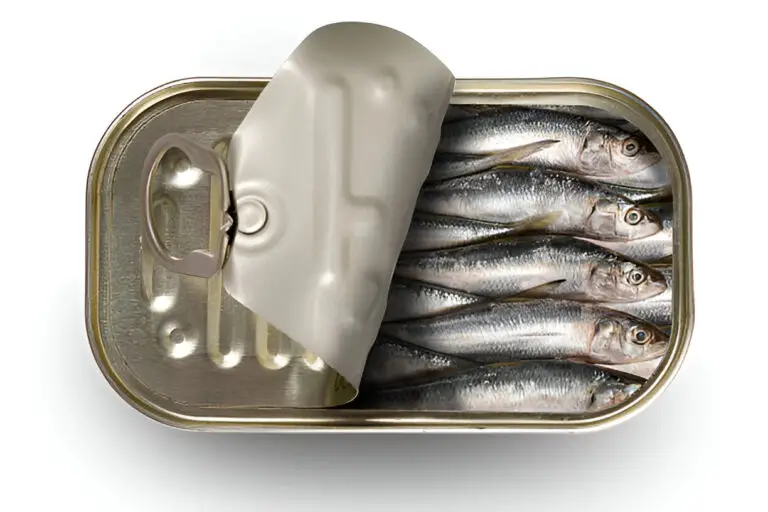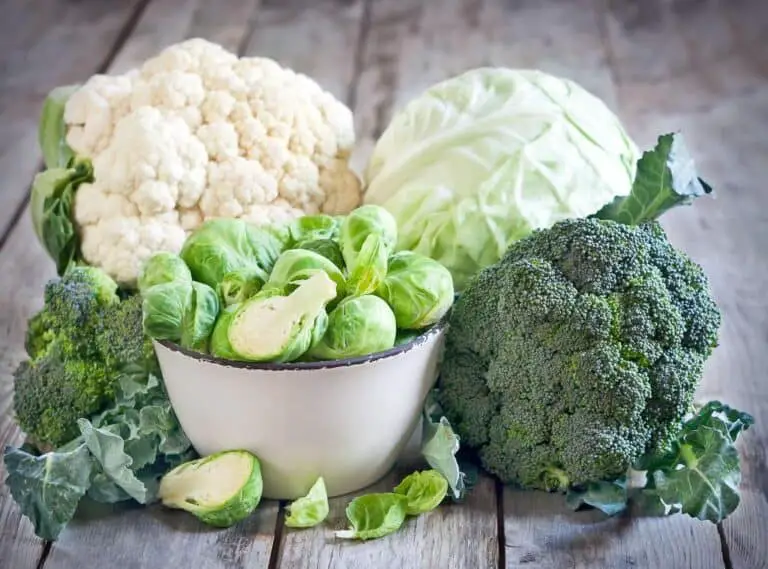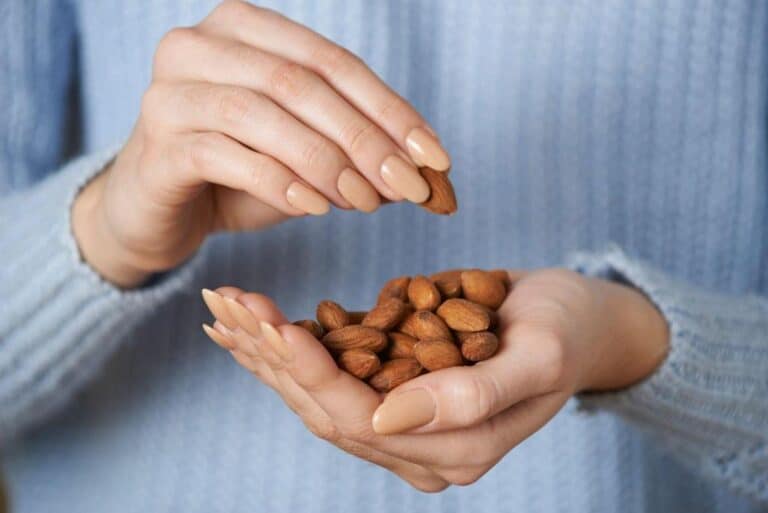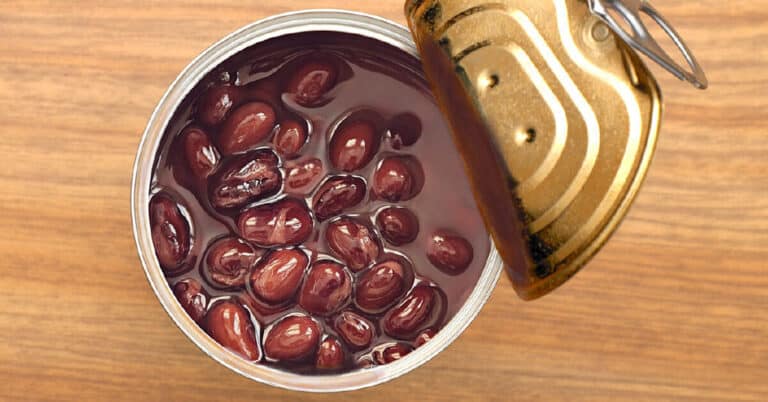What Happens If You Eat Too Many Brussels Sprouts? Can You Eat Every Day?
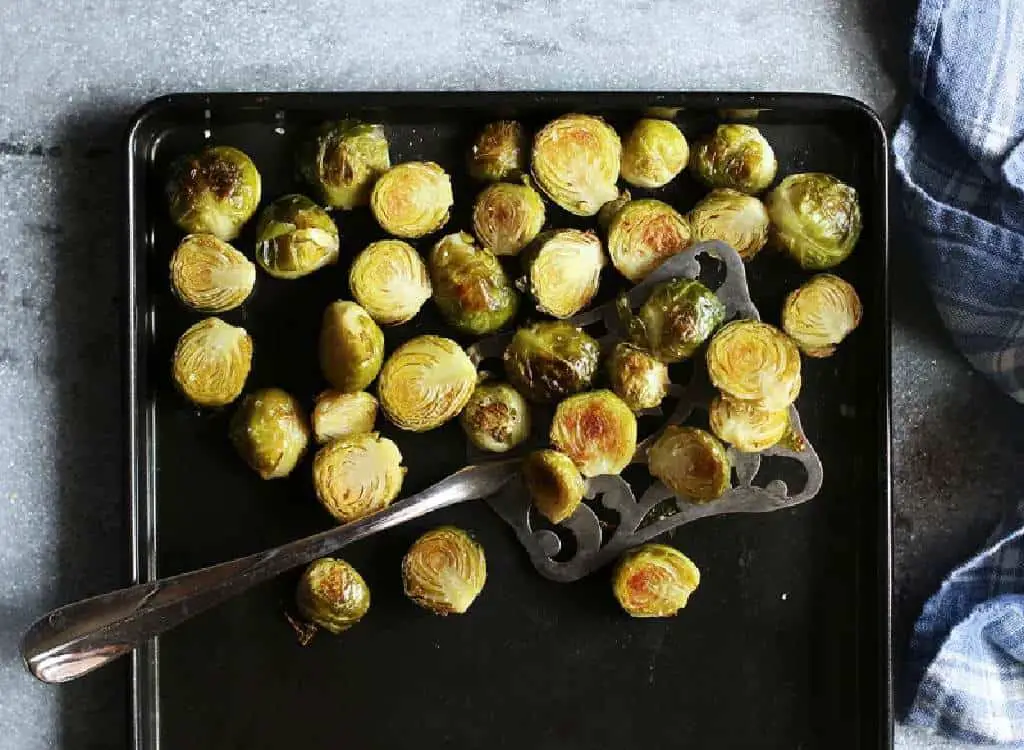
Are you a fan of Brussels sprouts? These tiny, green orbs have emerged as a beloved vegetable in the world of healthy eating. Bursting with essential vitamins, minerals, and fiber, they have become a go-to choice for those seeking a nutritious and delicious addition to their meals. But have you ever wondered what happens if you eat too many Brussels sprouts? Is it possible to have too much of a good thing?
In this intriguing exploration, we delve into the realm of excessive Brussels sprouts consumption. Brace yourself as we uncover the potential consequences of overindulging in these miniature cabbages. From digestive distress to thyroid concerns, we’ll shed light on the possible side effects that may arise.
So, if you’re ready to discover the untold story of what truly happens when you consume too many Brussels sprouts, join us on this flavorful journey of knowledge and self-awareness.
The Nutritional Profile of Brussels Sprouts
Brussels sprouts are a nutritional powerhouse, providing a wide array of macronutrients and micronutrients essential for a healthy diet. These miniature cabbage-like vegetables are rich in fiber, vitamins C and K, folate, and manganese. They also contain significant amounts of antioxidants, which can help combat oxidative stress and promote overall well-being.
Here is a quick overview of the key nutrients found in Brussels sprouts:
| Nutrient | Amount per 1 cup (156g) |
| Calories | 56 |
| Fiber | 4 grams |
| Vitamin C | 124% of the RDI* |
| Vitamin K | 274% of the RDI |
| Vitamin A | 16% of the RDI |
| Folate | 15% of the RDI |
| Manganese | 28% of the RDI |
| Potassium | 14% of the RDI |
*RDI: Recommended Daily Intake
As you can see, Brussels sprouts are particularly high in vitamin C, vitamin K, and fiber. These nutrients play vital roles in supporting immune function, bone health, and digestion. Including Brussels sprouts in your meals can contribute to overall well-being.
Recommended Brussels Sprout Serving Size and Frequency
To incorporate Brussels sprouts into your diet effectively, it is important to follow dietary guidelines for portion sizes and frequency. The United States Department of Agriculture (USDA) recommends consuming 1 to 2 cups of vegetables, including Brussels sprouts, per meal.
One cup of Brussels sprouts (156g) provides 56 calories, 4g of protein, 11g of carbohydrates, and 0.8g of fat. It is recommended that adults consume 14 grams of fiber for every 1,000 calories eaten each day. Eating Brussels sprouts along with other good sources of fiber, like other vegetables, fruits, and whole grains, can help meet fiber needs.
There is no specific recommended serving size or frequency for Brussels sprouts. However, they can be consumed as part of a healthy and balanced diet. It is important to note that some people may experience digestive discomfort after consuming Brussels sprouts due to their high fiber content
However, individual needs may vary based on factors such as age, sex, and activity level. It is always best to consult with a healthcare professional or a registered dietitian for personalized recommendations.
What Happens if You Eat Too Many Brussel Sprouts: Possible Side Effects
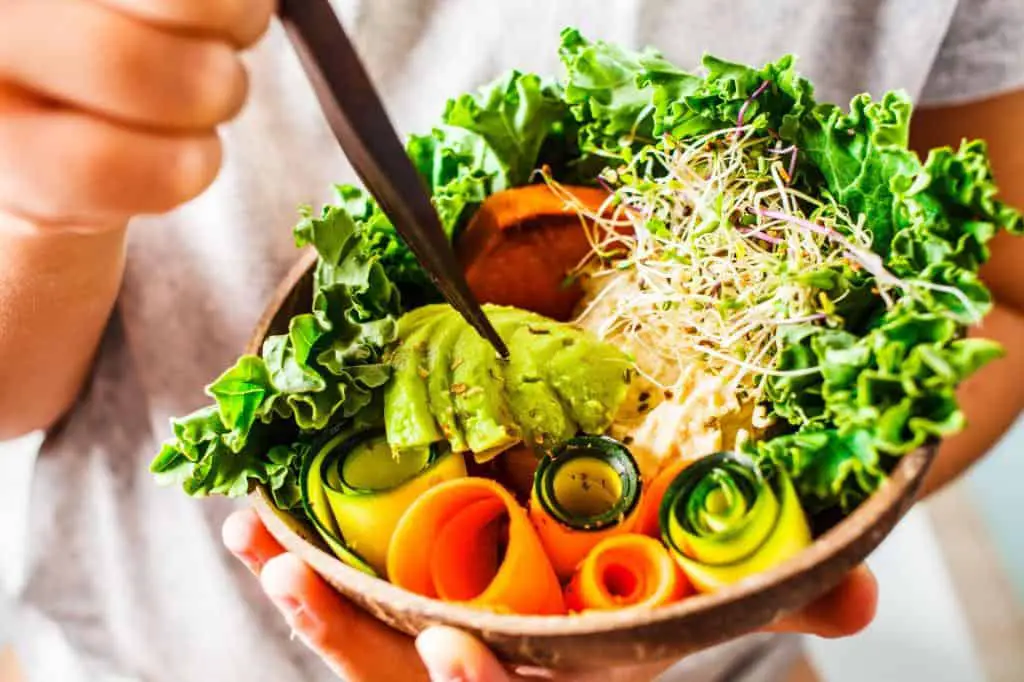
While Brussels sprouts offer numerous health benefits, consuming excessive amounts may lead to some unwanted side effects. Here are a few potential consequences of overindulging in Brussels sprouts:
- Digestive Distress: Brussels sprouts contain a type of carbohydrate known as raffinose, which can be difficult for some people to digest. Eating too many Brussels sprouts may lead to gas, bloating, and stomach discomfort. It is especially important to note that individuals with irritable bowel syndrome (IBS) or other digestive sensitivities may be more susceptible to these symptoms.
- Thyroid Interference: Brussels sprouts, like other cruciferous vegetables, contain compounds known as goitrogens. Goitrogens can interfere with iodine absorption and potentially affect thyroid function. However, the likelihood of this occurring is generally low, especially when Brussels sprouts are consumed as part of a varied diet. Cooking Brussels sprouts can also help reduce the goitrogenic activity.
- Vitamin K Overdose: While vitamin K is an essential nutrient, excessive amounts can interfere with certain medications, such as blood thinners. If you are taking any medications, it is advisable to consult with your healthcare provider to determine the appropriate intake of vitamin K-rich foods like Brussels sprouts.
- Allergic Reactions: Although rare, some individuals may be allergic to Brussels sprouts or other cruciferous vegetables. Allergic reactions can range from mild symptoms like itching and hives to severe reactions such as difficulty breathing. If you experience any adverse reactions after consuming Brussels sprouts, it is crucial to seek medical attention immediately.
- Mineral Imbalance: Brussels sprouts are relatively high in certain minerals, such as manganese. While these minerals are necessary for good health, excessive consumption can lead to mineral imbalances in some individuals. Maintaining a varied and balanced diet can help prevent such imbalances.
- Impact on Blood Clotting: Brussels sprouts are a good source of vitamin K, which plays a role in blood clotting. While this is generally beneficial, consuming excessive amounts of vitamin K from Brussels sprouts or other sources can affect the effectiveness of anticoagulant medications. If you are on blood-thinning medications, it is important to consult with your healthcare provider about maintaining a consistent intake of vitamin K.
- Interference with Medication Absorption: Brussels sprouts contain compounds that can interfere with the absorption of certain medications. If you are taking medications that require consistent absorption levels, such as thyroid medication or certain antibiotics, it is advisable to take them at least a few hours apart from consuming Brussels sprouts or other high-fiber foods.
- Oxalate Concerns: Brussels sprouts, like many leafy greens, contain oxalates, which can contribute to the formation of kidney stones in susceptible individuals. If you have a history of kidney stones or are at risk, it is advisable to moderate your consumption of Brussels sprouts and ensure you stay hydrated to reduce the risk of stone formation.
- Individual Sensitivities: Just like with any food, some individuals may have specific sensitivities or intolerances to Brussels sprouts. These can manifest as digestive discomfort, skin reactions, or other symptoms. If you notice any adverse effects after consuming Brussels sprouts, it may be worth discussing with a healthcare professional to determine the cause.
Read: Can You Cook Brussel Sprouts Whole?
Balancing Brussels Sprouts Intake in a Healthy Diet
Brussels sprouts can be a valuable addition to a healthy and balanced diet when consumed in appropriate amounts. Here are some tips for incorporating Brussels sprouts into your meals without experiencing negative effects:
- Incorporate variety and diversity: While Brussels sprouts offer numerous health benefits, it’s essential to have a diverse diet that includes other vegetables and nutrients. Rotate your vegetable choices throughout the week to ensure you’re getting a wide range of nutrients.
- Pair with complementary foods: Combine Brussels sprouts with other nutrient-rich foods to create a well-rounded meal. For example, you can pair them with lean proteins like chicken or fish, whole grains like quinoa or brown rice, and healthy fats like avocado or olive oil. This helps balance the overall nutritional profile of your meal.
- Mindful portion sizes: Pay attention to portion sizes to avoid overeating Brussels sprouts. Remember that they are just one component of a balanced meal. Fill your plate with a variety of vegetables, proteins, and whole grains, and allocate an appropriate portion for Brussels sprouts.
- Experiment with different recipes: Brussels sprouts can be prepared in various delicious ways. Try different recipes that include roasting, steaming, or stir-frying to find the cooking method that suits your taste preferences and digestive comfort.
- Listen to your body: Everyone’s digestive system is unique, so pay attention to how your body responds to Brussels sprouts. If you notice any discomfort or digestive issues after consuming them, you may need to adjust your portion sizes or cooking methods.
Remember, the key is moderation and balance. Brussels sprouts can be a nutritious and flavorful vegetable to include in your diet, but it’s important to consider your individual needs, preferences, and any specific health concerns you may have.
TIPS 
It’s always advisable to consult with a healthcare professional or registered dietitian for personalized advice, especially if you have specific dietary restrictions, allergies, or medical conditions. They can provide tailored recommendations based on your individual needs and help you make informed decisions about your diet and overall health.
Cooking Methods and Their Impact on Digestion
The way Brussels sprouts are prepared can affect their digestibility and potential digestive issues. Here are some common cooking methods and their impact:
- Steaming: Steaming Brussels sprouts helps retain their nutrients while making them easier to digest. This cooking method softens the sprouts and breaks down some of the complex fibers, making them more gentle on the digestive system.
- Roasting: Roasting Brussels sprouts can enhance their flavor and create a crispy texture. However, roasted sprouts may be slightly harder to digest compared to steamed ones, as the high heat can make them denser. It’s important to chew roasted Brussels sprouts thoroughly to aid digestion.
- Boiling: Boiling Brussels sprouts is another option, but it can cause some loss of nutrients. However, boiled sprouts can be easier to digest for individuals with sensitive stomachs. Adding a pinch of salt to the boiling water can help enhance the flavor.
By experimenting with different cooking methods, you can find the one that suits your taste preferences and digestive comfort.
Read: How to Season Brussels Sprouts for Roasting Like a Pro
Conclusion
Brussels sprouts are undoubtedly a nutritious vegetable that can offer a range of health benefits. However, like any food, eating too many Brussels sprouts may have potential side effects for some individuals.
By enjoying Brussels sprouts in moderation, being mindful of portion sizes, and considering individual circumstances, you can continue to incorporate these nutrient-rich vegetables into your diet while minimizing any risks. As with any dietary changes, it’s always wise to consult with a healthcare professional if you have specific concerns or conditions.
FAQs
Can you eat too many Brussels sprouts?
Consuming excessive amounts of Brussels sprouts can lead to digestive discomfort, including gas and bloating. It is important to follow recommended portion sizes and consider individual tolerance levels
Do Brussels sprouts cause gas and bloating?
Yes, Brussels sprouts contain carbohydrates that can be difficult to digest for some individuals, leading to gas and bloating. Cooking methods and portion sizes can help minimize these effects.
Are Brussels sprouts hard to digest?
Brussels sprouts can be harder to digest due to their high fiber and carbohydrate content. Cooking them thoroughly and chewing them well can aid in the digestion process.
Can you be allergic to Brussels sprouts?
While allergies to Brussels sprouts are rare, some individuals may have sensitivities or allergic reactions to them. Symptoms may include itching, swelling, or difficulty breathing. If you suspect an allergy, consult a healthcare professional for proper diagnosis and guidance.
Can Brussels sprouts interfere with medications?
Brussels sprouts contain compounds that can interact with certain medications. For example, if you are taking blood-thinning medications, it’s important to moderate your Brussels sprouts intake, as they contain vitamin K, which can affect blood clotting. Always consult your healthcare provider or pharmacist for personalized advice.
Are Brussels sprouts bad for your thyroid?
Brussels sprouts belong to the group of goitrogenic vegetables, which means they contain substances that can potentially interfere with thyroid function. However, it is unlikely that regular consumption of Brussels sprouts would cause significant thyroid problems in healthy individuals. If you have an existing thyroid condition, it’s advisable to consult your healthcare provider for personalized recommendations.
Can Brussels sprouts be included in a low-carbohydrate diet?
Brussels sprouts contain carbohydrates, but they are also low in calories and high in fiber, making them a suitable choice for many low-carbohydrate diets. However, portion control is still important to ensure you stay within your desired carbohydrate limits.


